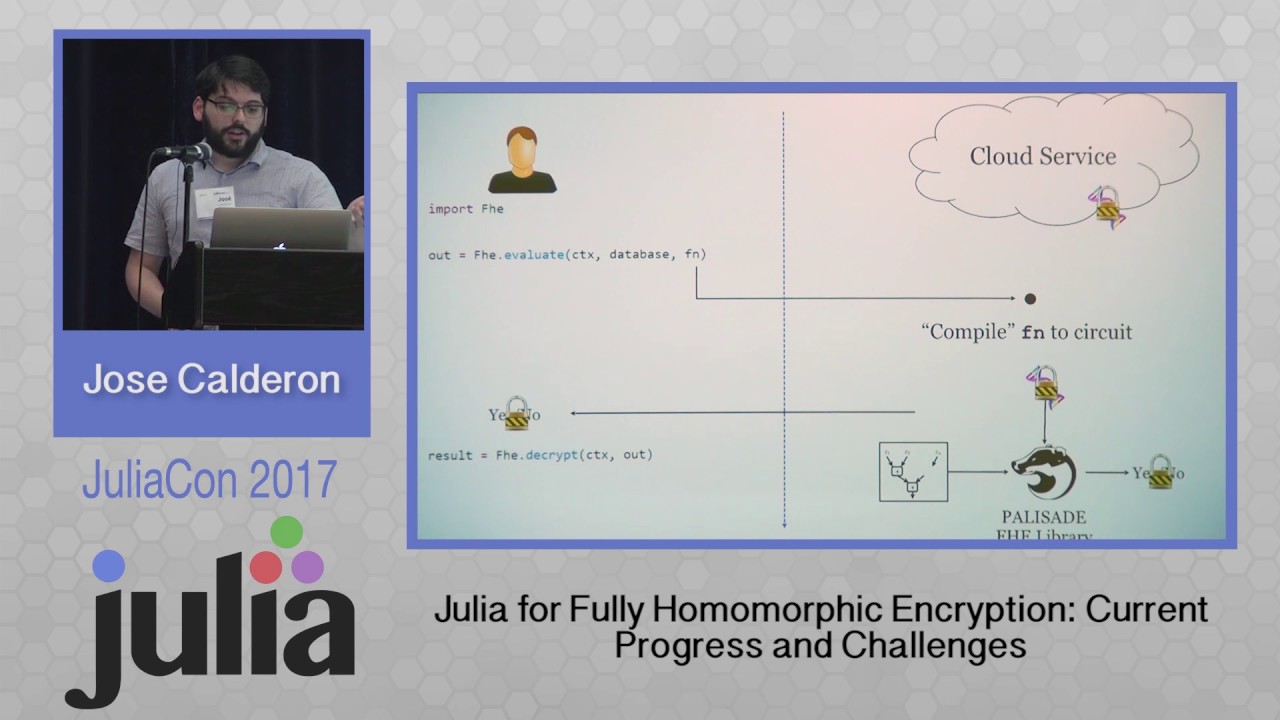Machine learning has been revamping the way we handle various day-to-day tasks, but due to data privacy concerns, the proliferation is being impeded. However, Julia computing research team has run machine learning algorithms on encrypted data using cryptographic techniques, which is being touted to preserve privacy.
Current Landscape In Machine Learning
Machine learning models can be bulky and difficult to share across various users. Besides, sharing modules is not feasible as it requires high computation at every end. Consequently, cloud computing came to the rescue, and now, one can leverage the machine learning models through cloud APIs and get the desired results. While this mitigates the dearth of computational power, it exposes your data to the cloud providers.
Julia Computing’s Modus Operandi
Julia Computing, along with utilising the cloud, blazed their trail to run machine learning models on encrypted data. A user can send its encrypted data to the cloud using API and get the encrypted result from the machine learning models. During the entire process, the data is neither decrypted nor stored in the cloud. Consequently, the cloud provider could not access the users’ data.
Secure computation — a methodology of computing on encrypted data — has become a key area of research in the world, where data is ubiquitous. This technique aims to secure the data while still making the most out of it. Of the many such methods, Julia Computing adopted holomorphic encryption to run machine learning models with concealed data.
Homomorphic Encryption
Homomorphic encryption enables users to process on ciphertexts to deliver desired results without exposing the sensitive data. Similar to the processing plaintext, computation through homomorphic encryption results in providing outcomes that do not deviate from expected ones.
The holomorphic encryption generally offers the following operations:
- pub_key, eval_key, priv_key = keygen()
- encrypted = encrypt(pub_key, plaintext)
- decrypted = decrypt(priv_key, encrypted)
- encrypted’ = eval(eval_key, f, encrypted)
The first three are similar to asymmetric cryptography, however, the final operation evaluates a function ‘f’ on encryption and returns the encrypted value, resulting in secure computation.
Read more on the official blog.
The firm utilised Flux.jl, machine learning model for Julia language, to run the model on the encrypted data. The trained model can be found on GitHub.
What It Means For Organisations
Especially sectors such as healthcare, data privacy is of paramount importance. This has slackened the adoption of cutting-edge technologies for providing superior care services.
Health tech organisations struggle to get patients data for developing robust ML-based healthcare products. However, with the successful implementation of machine learning on encrypted data, tech firms can innovate and offer products that can expedite drug development, enhance medical facilities, and allow them to integrate various Electronic Health Records (EHR), thereby, streamlining the workflow while keeping patients’ data safe and secure.
While it will have a positive impact on the healthcare sector, such privacy will empower organisations that are developing facial recognition technologies too. Organisations and governments around the world often witness criticisms for adopting technology without the roadmap of confidentiality. But machine learning with encrypted data will allow them to protect users’ data while providing tech-based solutions.
Outlook
Data privacy is the building block for any organisations and failing to secure users’ data can inflict damage to companies. Consequently, embracing the aforementioned technique can be the way forward in the future. Although ML model built on encrypted date may take a while to extend into other uses cases, it certainly has opened up the doors for harnessing innovation with privacy.
This announcement also demonstrates that Julia Computing is making new strides in innovation and is catching up Python, and R, although it is way behind what the other two prominent programming language can offer in data science landscape.







































































































